World Architecture Festival 2017 honors future design concepts with inaugural WAFX Prize
By Justine Testado|
Thursday, Oct 12, 2017
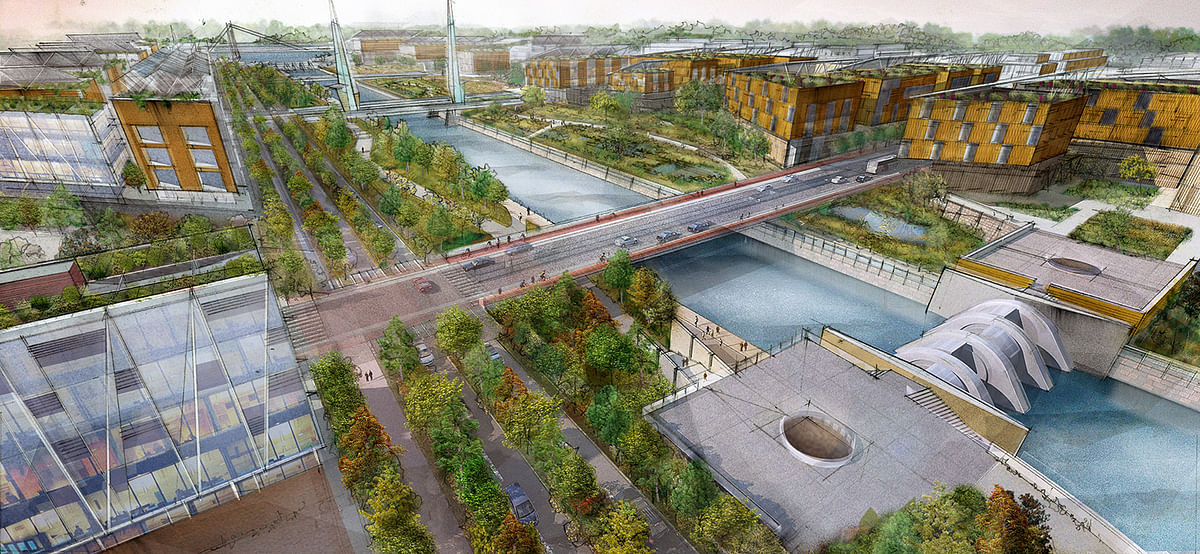
Related
The anticipated 2017 World Architecture Festival is a couple weeks away, and competition is already heating up. A shortlist of the competitors was revealed earlier this year, and now the winners of the inaugural WAFX Prize have been announced. As part of the WAF's 10th anniversary celebration, the WAFX Prize distinguishes forward-thinking architectural concepts that identify key issues that architects must address over the next decade.
Spanning categories like climate change, water, aging and health, smart cities, and cultural identity, 11 projects were selected as winners. Paul Lukez Architecture's Hydroelectric Canal was crowned the overall winner and the winner of the Climate, Energy & Carbon category. The team will be presented with the prize on November 17 during the Festival. Read more about the category winners below.
(cover image) Overall winner + Climate, Energy & Carbon category winner: Hydroelectric Canal by Paul Lukez Architecture.
Project summary: “The Hydroelectric Canal addresses the complex challenge of rising sea levels. PLA and a multidisciplinary team are working on a scheme to harness the energy from the rising tides in low-lying urban areas. The communities will be able to draw clean energy through advanced hydroelectric systems which will generate power from the tidal changes.”
Power and Justice category winner: Revolution 4.0 by Abdullah Ahmed N AlDabbous
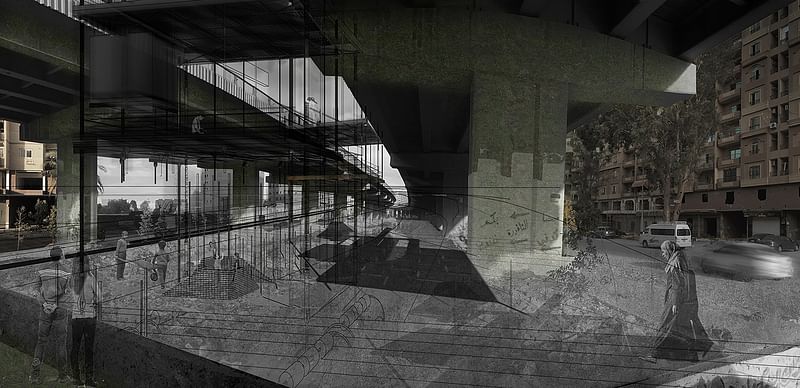
Project summary: “The project utilizes Cairo’s unused urban spaces, such as motorway flyovers, to provide both learning and opportunities for advancement for street children. This project aims to engage with the street children, who have become part of Cairo’s social and spatial structure, as positive economic assets rather than liabilities.”
Smart Cities category winner: Media City by Gad Architecture
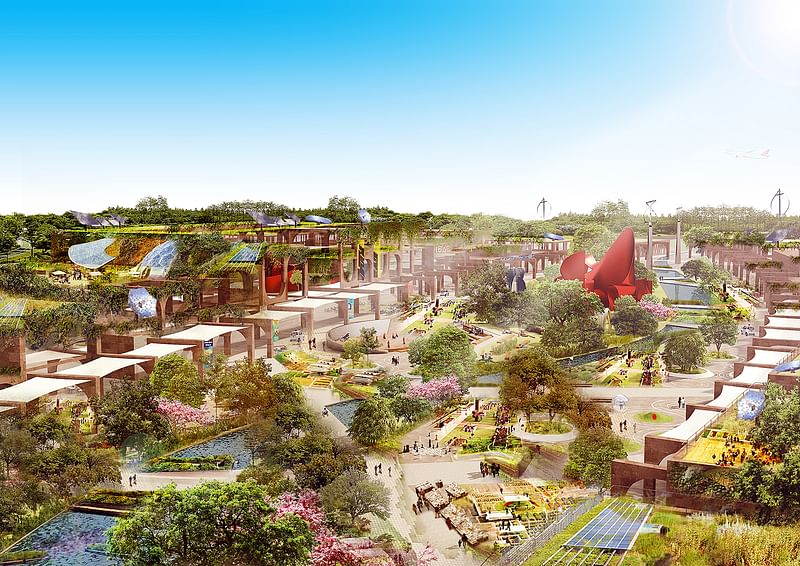
Project summary: “Media City will be a vibrant and engaging habitat where people can witness the design, production and application of virtual reality and multimedia products as well as being a beacon for future smart city strategies.”
Smart Cities category winner: Jakarta Jaya: The Green Manhattan by SHAU
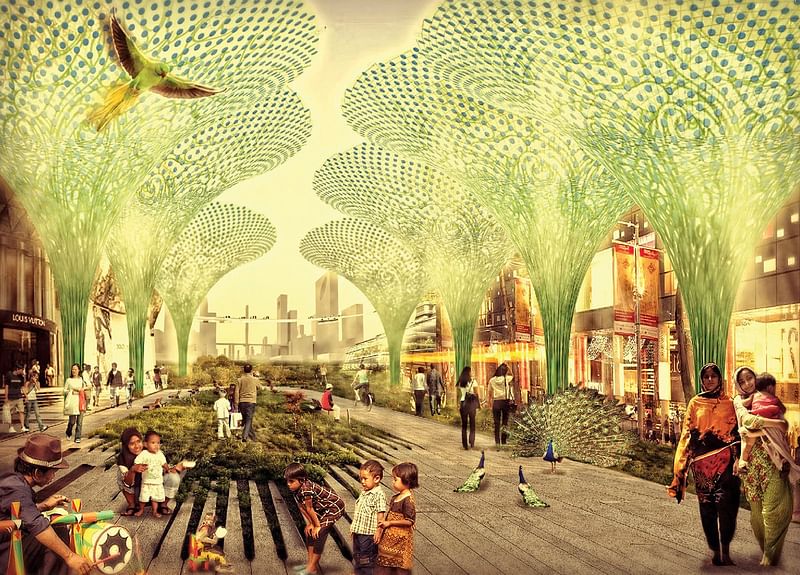
Project summary: “This project proposes for a multitude of ecological and social projects combined to form one sustainable city at Jakarta Bay.”
Smart Cities category winner: Oresund City – a new European metropolis by 2030 by Sweco Architects AB
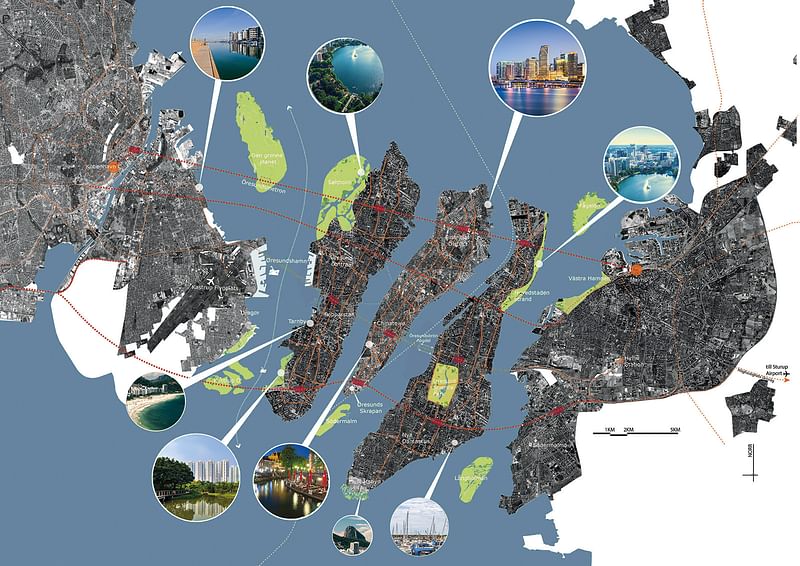
Project summary: “This proposal is based on the vision of using a new archipelago to join Copenhagen and Malmo to form an entirely new city: Oresund City.”
Cultural Identity category winner: Lagos's Wooden Tower by Hermann Kamte & Associates
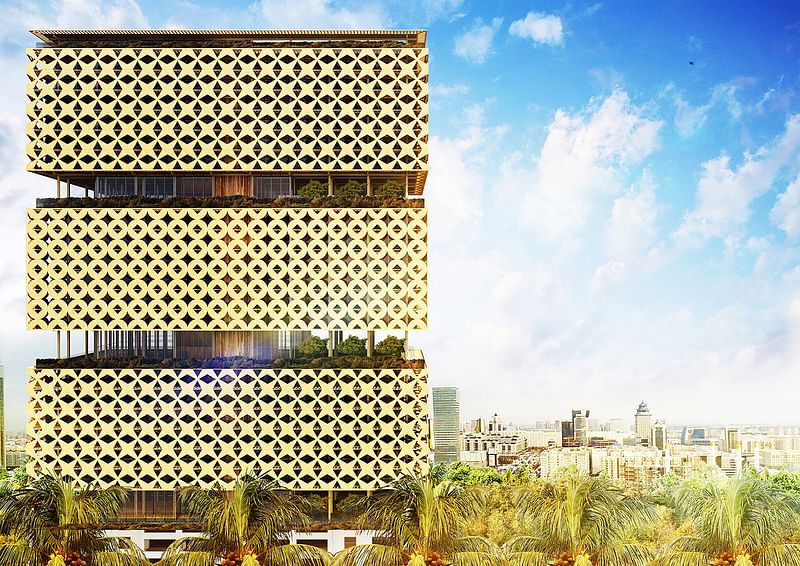
Project summary: “This proposal aims to create a new generation of the city of Lagos, above the existing urban fabric. The Lagos wooden tower is built with a high resistance LVL timber system and stands out as a residential tower that acts as a smart and sustainable monument to the city.”
Building Technology category winner: Energie- ud Zukunftsspeicher im Energiepark Heidelberg by LAVA Berlin and schlaich bergermann partner
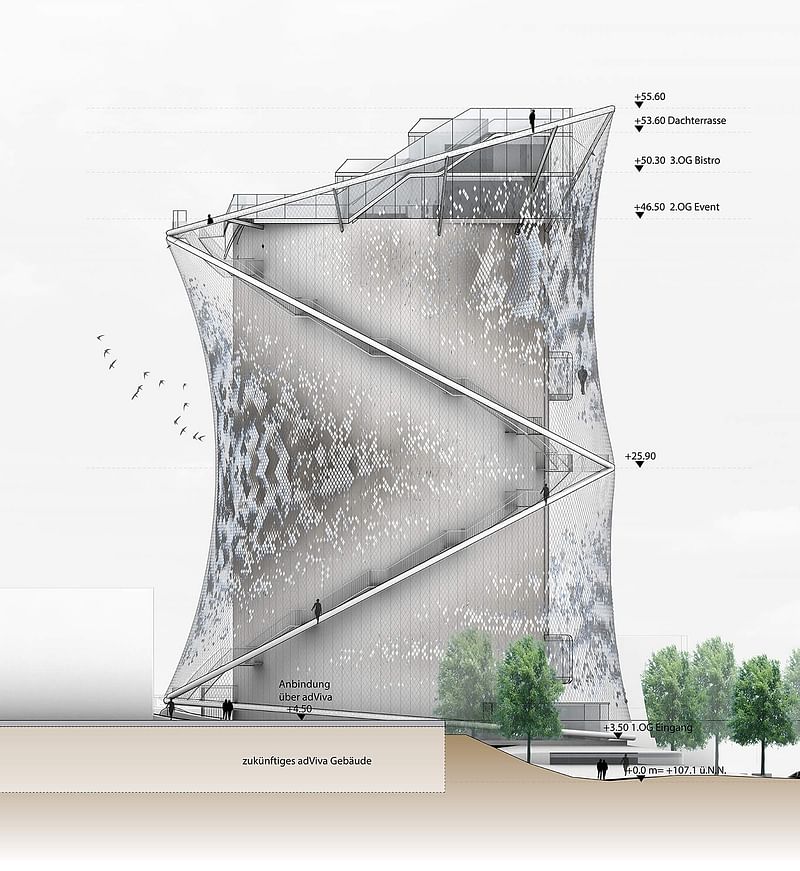
Project summary: “This animated energy tower reinvents a 1950s tank typology into a hub of sustainability; both a renewable energy storage and an educational destination for renewable energy. The external façade is animated by over 20,000 diamond shaped steel plates, the number of moving plates will indicate the number of households supplied by the renewable energy stored in the tower.”
Reuse category winner: I LOVE NYDALEN by SAAHA AS
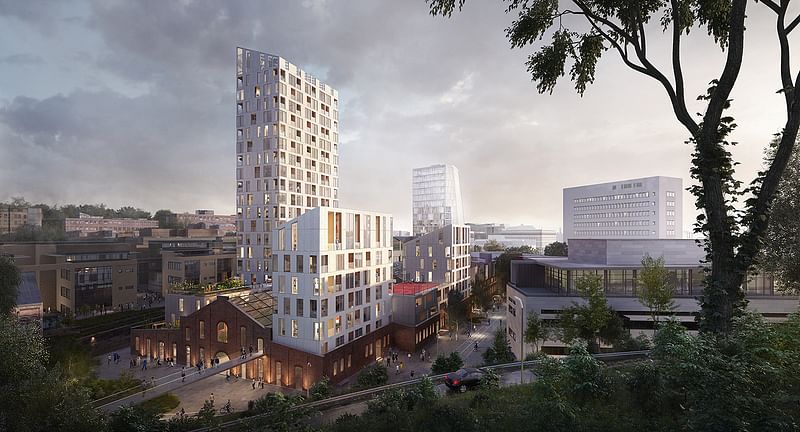
Project summary: “This proposal maps out how the historic industrial buildings in the Nydalsveien 32B area of Oslo can be preserved and redeveloped with housing, to enable active and vibrant city life. The center of the district will be transformed into a greenhouse, a common and shared space for both residence and the general public.”
Water category winner: Floating Ponds by Surbana Jurong Consultants
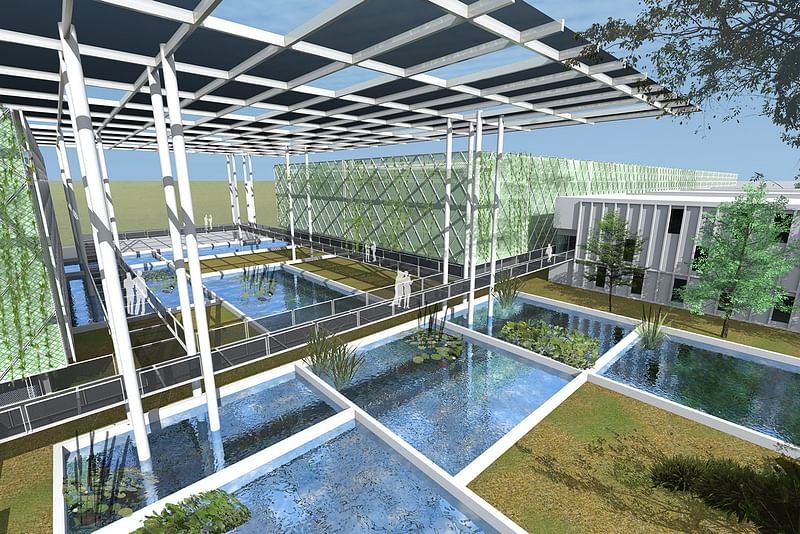
Project summary: “This projects’ systemic integration of water, nutrients and energy leads to a concept that enables the creation of a self-sustained and closed loop farming eco-system. Floating Ponds omits the traditional dependency on land and will enable rapidly expanding and densifying cities to build resilience through a creative use of space and water.”
Ethics category winner: Whitmore Community Food Hub Complex: Building Community around Food by University of Arkansas Community Design Center
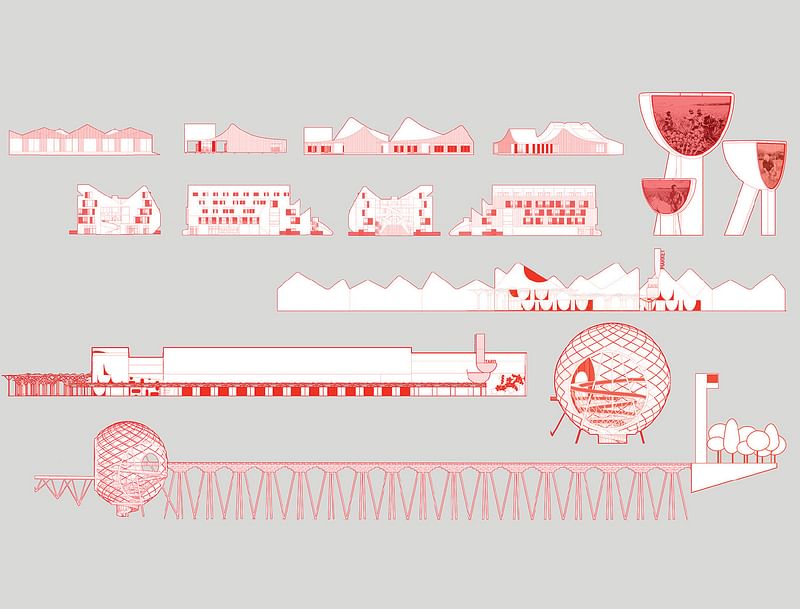
Project summary: “Besides providing processing and distribution support for an underserved agricultural community, the 400,000 sq.ft. Whitmore Food Hub serves additional community needs like agricultural workforce housing, retail, local business incubation, and cultural tourism.”
Aging and Health category winner: Södra Skanstull by White Arkitekter winner
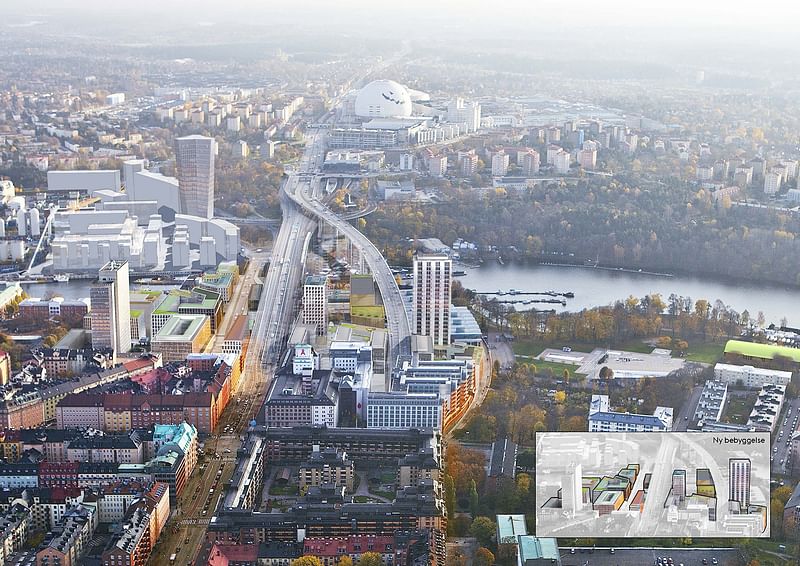
Project summary: “A new masterplan for Sodra Skanstull, an area south of Stockholm. The focal point of the scheme is a new diagonal boulevard for pedestrians and cyclists, which makes use of an old railway route, and improves public movement through the area. White’s proposal shows how creating walkability is at the heart of building a people centred sustainable city of the future.”
RELATED EVENT World Architecture Festival 2017

RELATED NEWS The World Architecture Festival has announced its shortlist for the 2017 Awards


Share
0 Comments
Comment as :